Taiwan’s incumbent President Tsai Ing-wen won a landslide victory in Saturday’s election, a result that dealt a blow to her Beijing-friendly rival Han Kuo-yu and marked a doubling-down on the island’s commitment to democratic values.
Tsai, of the Democratic Progressive Party (DPP), swept up more than 57 per cent of the vote, comfortably landing her a second four-year term in office. Han, of the Kuomintang (KMT) party, took home just over 38 per cent of the vote. In the jointly-held legislative elections, the DPP lost sevens seats but retained a crucial majority with 61 seats, while the KMT gained three seats to secure 38 in total.
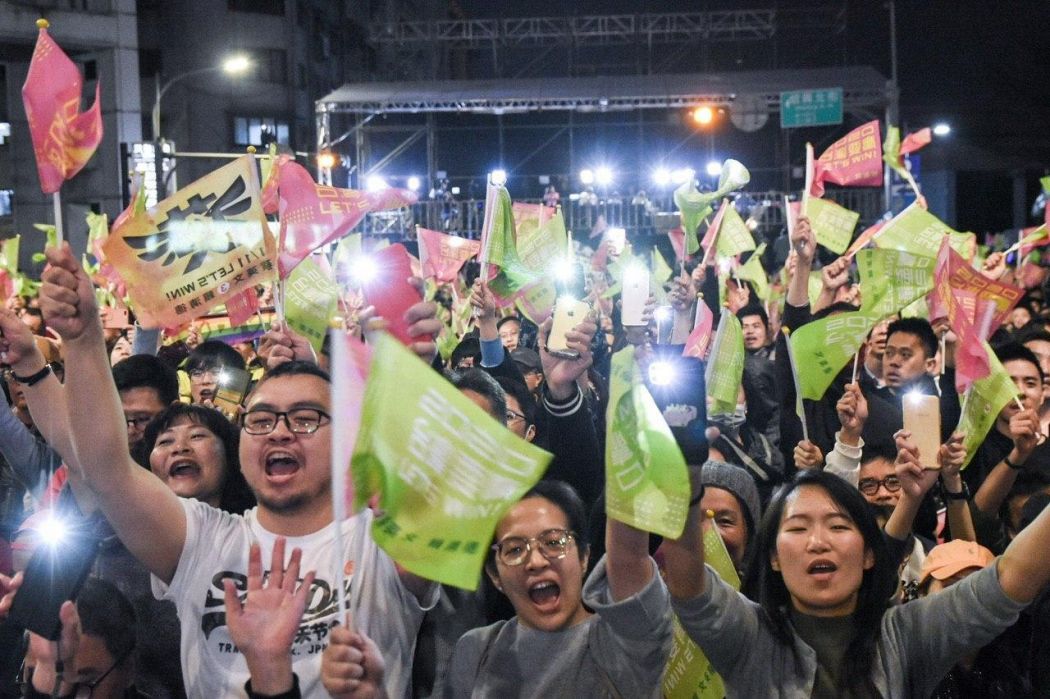
Taking to the stage to thank voters, Tsai conveyed a message of defiance against what she described as escalating military, economic and diplomatic pressure from Beijing. With the electoral loss of a candidate who favoured warmer ties with mainland Chinese authorities, what is the significance of Tsai’s win and what does it mean for the future of cross-strait relations?
A vote for Tsai
Tsai on Saturday reaffirmed her commitment to a cross-strait relationship built on mutual respect. The victory speech was a rebuff of Beijing’s long-standing view of Taiwan as part of its territory, despite never having governed the island. In 1945, Japan ceded control of the territory to the Republic of China government, which has controlled it ever since.
“Saturday’s election sent an undeniable signal that Taiwan is keen on maintaining its liberal-democratic way of life, and that it opposes all forms of coercion and pressure on unification and ‘One Country, Two Systems’,” J. Michael Cole, a Taipei-based senior fellow with the Global Taiwan Institute in Washington DC, told HKFP. He referred to Chinese leader Xi Jinping’s proposal, raised in his 2019 New Year’s address, to draw up a close bilateral agreement with Taiwan, as seen in Hong Kong.
“The results also discredited the alternative proposed by the populist Han Kuo-yu, who had the kind of undemocratic tendencies that Taiwanese voters made clear isn’t for them,” he added. “This vote also confirmed the social trends in Taiwan society, such as respect for LGBT rights, generational justice and so on.”
Last May, under Tsai’s administration, Taiwan legalised same-sex marriage under a separate law to the existing legislation, making it the first in Asia to do so.
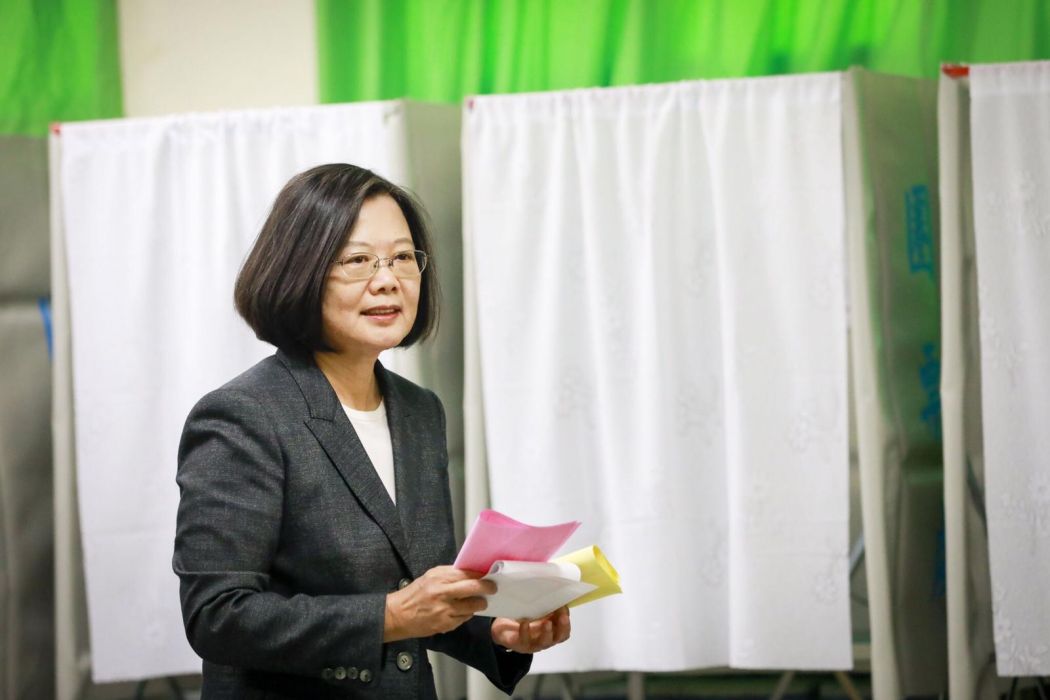
Tsai’s overwhelming majority, however, failed to translate into party votes – a legislative ballot that awards seats to legislators-at-large based on popular support for their political parties. During the process, known as proportional representation, the votes ended up split with 33.9 per cent for the DPP and 33.3 per cent for the KMT.
Bonnie Glaser, a Taiwan expert at the Center for Strategic and International Studies in Washington DC, told HKFP that the outcome of the presidential election was primarily a victory for supporters of democracy and freedom.
“In the legislative party vote, the KMT and the DPP were almost evenly divided and that tells me the people voted for Tsai, not necessarily her party,” she said. “So going forward, the KMT has reason to believe that in the future, if they get their act together, they can play a role in leading Taiwan, perhaps with a better candidate and a better policy agenda.”
Han – who ran his campaign under the slogan “Safety for Taiwan, money for the people” – stirred up controversy in the run-up to the election with his inflammatory comments on women and ethnic minorities. He was sued by a journalist after saying that “the majority of pundits accept dirty money” at a rally, and is facing a recall petition – filed by civil groups and the pro-independence Taiwan Statebuilding Party last December – calling for his resignation.
The Kaoshiung mayor was also slammed by critics for visiting Beijing’s representative office in Hong Kong and meeting with then-director Wang Zhimin behind closed doors last March.
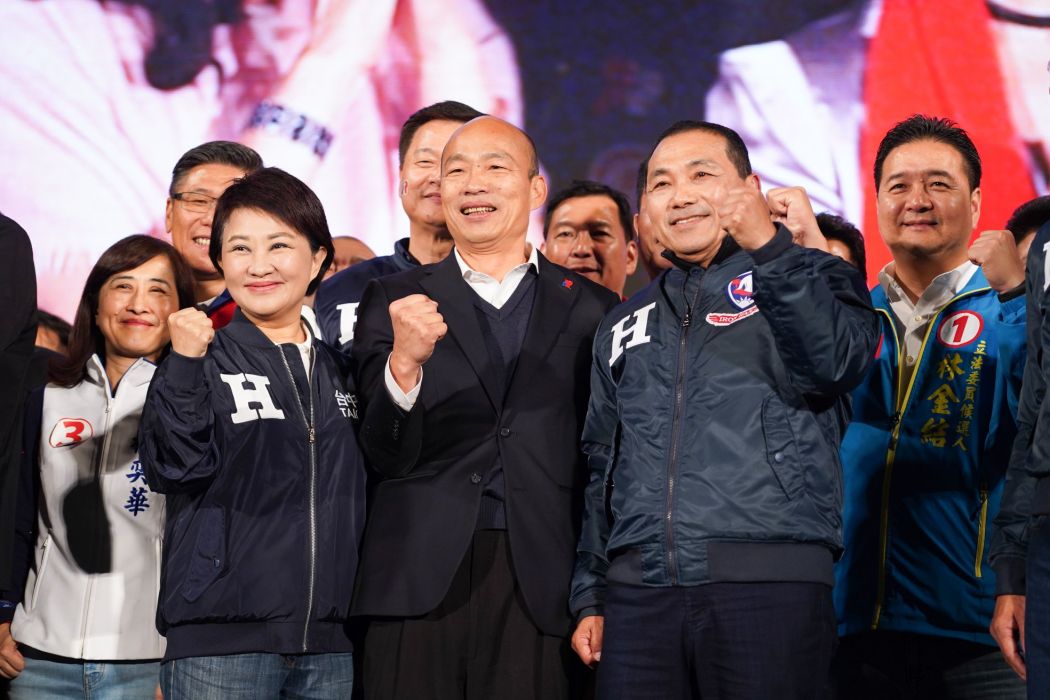
“I don’t think Beijing will completely give up on the KMT,” Glaser added. “They know that the DPP is there for another four years so I think they are worried about the potential of Tsai Ing-wen and the deep-green wing of the party to take a more radical and pro-independence direction. But I don’t think that’s a valid concern. I think she believes in the status quo and that this is the best policy for Taiwan.”
Kuomintang failure
Saturday’s election saw a huge turnout of 74.9 per cent of registered voters, marking a dramatic increase from 66 per cent in 2016 when Tsai was first elected as president – a fact which Cole partly attributed to widespread public support for the incumbent president.
“The fact that Tsai was reelected with the highest number of votes ever by any presidential candidate since Taiwan’s democratisation also highlights popular support for her policies, notwithstanding punishments by Beijing,” he said.
“I think [the election result] was as much a KMT failure as it was a DPP victory,” Glaser added. “The KMT I think chose a candidate that was not ready to run as president. He did very well in the local elections [in Kaoshiung] but he made many gaffes [this time around].”
Han was elected mayor in Kaoshiung in November 2018, making him the first KMT candidate to win the office in the DPP stronghold since 1998. The local elections that year saw a DPP wipeout as it won only six of the 22 municipalities and counties in a vote that was seen to signal a loss of public confidence in Tsai’s administration.
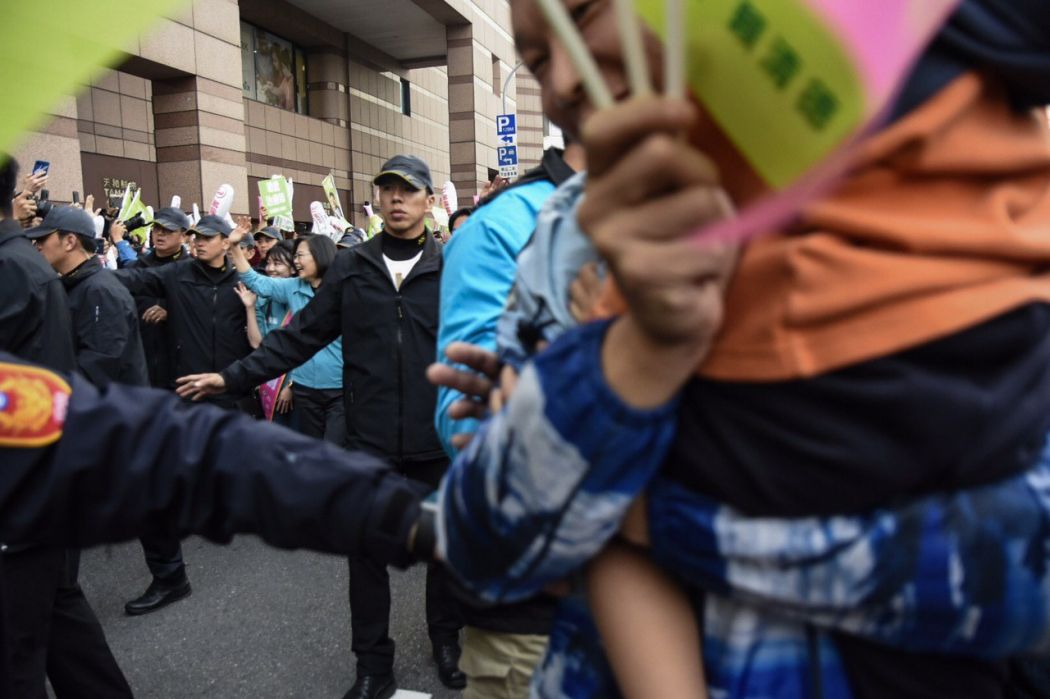
“I think what’s going on with Hong Kong resonated with Taiwan voters,” Glaser added. “And President Tsai used concern about the potential for Taiwan to become something like Hong Kong.”
Hong Kong has been roiled by months of pro-democracy protests sparked by a now-withdrawn proposal to draw up an extradition agreement with China. The unrest has morphed into violent displays of dissent against Beijing’s encroachment and calls for democratic reform.
Tsai has invoked Hong Kong as a cautionary tale of Beijing’s tightening grip on one of its peripheries, with the slogan “Hong Kong today, Taiwan tomorrow” appearing at rallies across the island ahead of the election.
But Glaser also put Tsai’s electoral success down to manifold factors including the strength of the economy in terms of its strong export growth and low unemployment rate.
“Taiwan’s economy is not doing badly in terms of the aggregate performance, and some of the reshoring of companies from the mainland is creating a few jobs so there’s some bright spots,” she said. “I think economics is important and the opposition, and concerns about Taiwan’s sovereignty in part because of Hong Kong, [contributed to] Tsai Ing-wen’s success.”
Beijing to ramp up pressure
Meanwhile, the Chinese Communist Party (CCP) is not expected to relent on its stance towards Taiwan; instead, it may up the ante. Xi has previously expounded the use of military force towards Taiwan and said that unification between the two territories is “inevitable.”
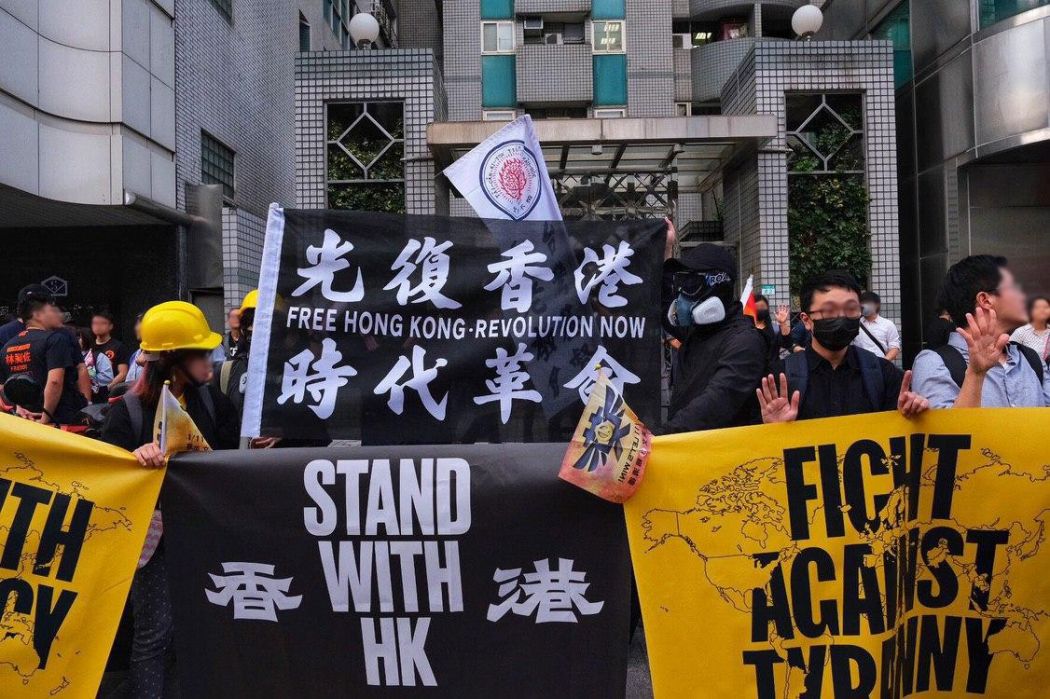
Chinese state media have already claimed “dirty tactics” and foreign interference led to Tsai’s win. Meanwhile, foreign ministry spokesman Geng Shuang said on Sunday that “regardless of what happens in Taiwan, the basic facts won’t change: there is only one China in the world and Taiwan is part of China.”
Valérie Niquet, head of the Asia department at French think-tank the Foundation for Strategic Research, told HKFP that the immediate international consequences will not be huge, “but by asserting its claims as a legitimate democracy, Taiwan might be able to assert its influence on the international stage in terms of its relationships with other democratic nations.”
Beijing refuses to maintain diplomatic relations with any nation that recognises Taiwan’s sovereignty. The island has lost seven diplomatic allies in the past three years under Tsai’s administration, shrinking its number of partners as Beijing ramps up the military and economic pressure.
Thank you, Taiwan. pic.twitter.com/SZVSOtJtT4
— 蔡英文 Tsai Ing-wen (@iingwen) January 11, 2020
Tsai, in a policy address last December, said that Beijing had become the “biggest threat” to Taiwan’s security, and pledged to not exchange “sovereignty for economic interests.”
“I do not foresee enlightenment in Beijing, which likely will once again seek to punish Taiwan through military coercion and various efforts to isolate it on the international stage while assailing the island nation’s democratic institutions with political warfare,” Cole explained. “Tsai [on Saturday] once again extended an olive branch to Beijing, saying she is willing to meet them as long as the Chinese side recognises the existence of Taiwan and respects the wishes of its 23 million people.”
“Support for Taiwan by the international community will, therefore, be crucial for Taiwan’s ability to withstand the expected pressure from China,” he added.

Taiwan was a member of the United Nations until 1971, after the General Assembly voted to recognise Beijing as China’s ruling government. Its subsequent requests for admission have been repeatedly denied. However, a coalition led by the United States has forced the global body and its secretary-general to stop using the phrase “Taiwan is a part of China.”
“Going forward, I think the Chinese are going to take tough measures to warn [Tsai] against taking any radical pro-independence moves,” Glaser added. “I expect they will double down on their use of military, diplomatic, and economic measures that they have already been taking.”
“I doubt we will see a more flexible policy coming out of China,” she said. “But ultimately I don’t see China putting unification on the front burner. I think that [Chinese leader] Xi Jinping has his hands full with the protests in Hong Kong and the slowdown of the economy alongside tensions with the United States. I am highly doubtful he would use military force as something beneficial for Beijing and the CPP.”
Correction 13.1.20: A previous version of this article erroneously stated that Tsai Ing-wen saw a record proportion of votes in her favour. She recieved a record number of votes, but the vote share for Ma Ying-Jeou in the 2008 election was 1.45 per cent higher.
Hong Kong Free Press relies on direct reader support. Help safeguard independent journalism and press freedom as we invest more in freelancers, overtime, safety gear & insurance during this summer’s protests. 10 ways to support us.

